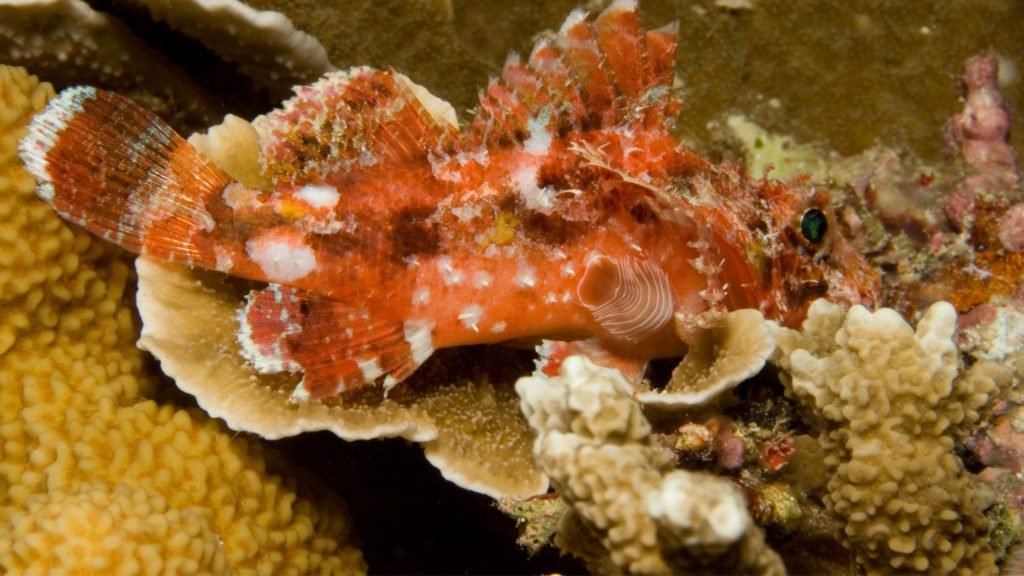As a doting fish parent, it’s heartbreaking to see your aquatic pals struggling with any illness, let alone parasites. The question that haunts every aquarium owner at some point is, “How do aquarium fish get parasites?” Let’s dive into this matter, arm ourselves with knowledge, and learn how to create a safer environment for our finned friends.
Types of Parasites in Aquarium Fish
Before we delve into how aquarium fish get parasites, let’s first understand the different parasites your fish might encounter.
- Protozoa are single-celled organisms such as Ichthyophthirius multifiliis (Ich) and Oodinium, responsible for common fish diseases like ‘Ich’ or ‘white spot disease’ and ‘velvet.’
- Worms: Fish can also get infected by several types of worms, including flukes (both gill and body flukes), tapeworms, and roundworms.
- Crustaceans: This category includes parasites like fish lice and anchor worms.
Knowing the types of parasites is the first step in understanding how aquarium fish get parasites. Remember, each style has its transmission mode, symptoms, and treatment methods.
Common Sources of Parasites in Aquariums
Now, let’s focus on how parasites can enter your aquarium.
Introducing New Fish
Often, new fish might unknowingly carry parasites, becoming the primary source of infestation in your aquarium. Always quarantine new additions before introducing them to the main tank to avoid parasite transmission.
Live Food
Feeding live food to your fish is another common source of parasites. Microscopic parasites can easily hide in these foods, hitching a ride into your aquarium. Opt for frozen or dried food, which usually undergoes treatment to kill parasites.
Plants and Decorations
Aquarium decorations, including live plants, can harbor parasites if not correctly cleaned before adding them to your tank.
Symptoms of Parasite Infection in Aquarium Fish
Identifying parasite infestation is crucial for the health of your fish. Look for these common symptoms:
- Scratching against objects or “flashing.”
- Unusual swimming behavior
- Visible spots or worms on the body
- Rapid breathing or gasping at the surface
- Loss of appetite
Stay tuned as we explore how aquarium fish get parasites and explore prevention and treatment strategies.
Effects of Parasites on Fish Health
Parasites, no matter the type, bring trouble to your fish and disrupt the peaceful life within your aquarium. Here’s how parasites affect your fish’s health:
Physical Damage
Parasites attach themselves to the fish, causing physical damage. They might create wounds, ulcers, and other skin damage, leading to secondary infections.
Stress and Weakening
The constant discomfort causes stress, which weakens fish’s immune system, making them susceptible to other illnesses.
Nutrient Absorption
Some parasites, like tapeworms, absorb nutrients from the fish’s body, leading to malnutrition and stunted growth.
The impact of parasites on your fish’s health underlines the importance of prevention and swift treatment.
How to Identify Parasites in Aquarium Fish
Learning how to identify parasites in aquarium fish is crucial to intervene quickly and appropriately. Besides watching for symptoms, there are other ways to identify parasites:
Use of a Microscope
A microscope can help you detect parasites in aquarium water or scrapings from a fish’s body. This method is beneficial for identifying protozoa and worms.
Visual Identification
Some parasites, such as anchor worms and fish lice, can be visually identified without a microscope.
Preventing Parasite Infestation in Fish Tanks
Prevention is always better than cure, and knowing how aquarium fish get parasites allows us to take proactive steps to stop the invasion before it starts.
Quarantine New Additions
Always quarantine new fish, plants, or decorations before adding them to your main tank. A separate quarantine tank allows you to observe new additions for any signs of disease or parasites.
Regular Water Changes
Regular water changes can help dilute any potential parasites that might be present in the water.
Healthy Diet
A well-balanced diet boosts your fish’s immune system, making them less susceptible to parasite infestation.
Stay tuned as we delve deeper into treatment options and whether these little critters pose any danger to you.
Treatment Options for Aquarium Fish Parasites
Knowing how aquarium fish get parasites is the first step. However, understanding the available treatment options is essential if an infestation has already occurred.
Medications
Specific medications can target and eliminate different types of parasites. For instance, Praziquantel is effective against flukes and tapeworms, while Metronidazole can handle internal protozoa and some bacterial diseases. Always follow the manufacturer’s instructions to avoid complications.
Natural Remedies
Some aquarists turn to natural remedies, such as garlic or herbal products. Garlic is believed to boost fish immunity and may have anti-parasitic effects. However, remember that not all natural remedies will work for every type of parasite, and severe infestations will likely require medication.
Environmental Adjustments
Changing environmental conditions, like raising the water temperature, can help treat certain parasites. For instance, increasing the temperature can speed up the life cycle of ich parasites, making them more susceptible to treatment.
Aquarium Maintenance to Prevent Parasites
Regular and thorough maintenance prevents parasitic infections in your fish tank. That involves several crucial steps.
Regular Water Changes
Keeping the water in your aquarium clean is essential for preventing many health issues, including parasitic infections. Regular water changes can help keep the water conditions stable and healthy for your fish.
Quarantine New Additions
Before adding new fish or plants to your aquarium, quarantining them first is a good idea. That helps ensure they do not carry parasites that could infect your existing aquarium residents.
Are Aquarium Fish Parasites Harmful to Humans?
While many parasites can infect aquarium fish, their risk to humans is minimal.
Zoonotic Parasites
Some parasites, known as zoonotic parasites, can infect animals and humans. However, these are relatively rare in aquariums and are more likely to be found in wild fish populations.
Precautionary Measures
Despite the low risk, taking precautions when handling fish or cleaning your aquarium is always wise. Always wash your hands thoroughly after any contact with the aquarium, and avoid running sick fish if you have any open cuts or sores.
Best Practices for Controlling Parasites in Aquarium Fish
Managing and controlling parasites in an aquarium isn’t just about reacting to infections—it’s about proactive measures that keep your fish healthy.
Regular Water Changes and Tank Cleaning
Parasites thrive in dirty environments, so maintaining cleanliness in your aquarium is crucial. Regular water changes and tank cleaning can significantly reduce the chances of a parasite infestation.
Quarantine New Fish
Before introducing new fish to your aquarium, quarantining them first is a good practice. During this period, you can observe the fresh fish for any signs of disease or parasites.
Feed Your Fish a Balanced Diet
A well-nourished fish is likelier to have a robust immune system capable of resisting parasites. Ensure you feed your fish a balanced diet appropriate for their species.
Use Anti-Parasite Treatments When Necessary
When a parasite infestation does occur, use treatments specifically designed to combat aquarium parasites. However, these should be used sparingly and only when necessary, as overuse can lead to resistance.
Controlling parasites in an aquarium involves consistent and attentive care, but it is a labor of love that will pay off in the health and happiness of your fish.
Frequently Asked Questions
Q1: Can parasites kill my aquarium fish?
A1: While not all parasites are lethal, some can cause severe harm and even death, mainly if left untreated. Early identification and proper treatment are crucial to managing parasitic infections.
Q2: How quickly can a parasite infestation spread in an aquarium?
A2: The rate at which an infestation spreads can vary widely depending on the type of parasite and the conditions in the aquarium. Some parasites can reproduce rapidly and overwhelm a tank in days.
Q3: Can I use salt to kill parasites in my freshwater aquarium?
A3: Some freshwater parasites can be controlled with salt treatments. However, it’s essential to research and follows proper dosing guidelines, as too much salt can harm your fish.
Q4: Can I catch parasites from my fish?
A4: Zoonotic parasites can infect humans, but these instances are rare, especially with proper aquarium hygiene.
Fishkeeping is rewarding, and understanding parasites is essential to keeping your fish healthy and happy.
Conclusion
In conclusion, understanding “how aquarium fish get parasites” is essential to fishkeeping. By learning about parasites’ types, sources, and effects and how to identify, treat, and prevent them, you can ensure a healthier environment for your aquatic pets. This knowledge will help you enhance your fishkeeping skills and derive greater enjoyment from your aquarium hobby.
Related Articles

Mastering the Art of Dog Training: How to Train Your Dog to Stop Barking
Introduction to Dog Barking Barking is

How to Clean Goldendoodle Ears: Preventing Infections
Welcome to our essential guide on

Top Picks: Best Harness for Goldendoodle Revealed!
Welcome to our comprehensive guide on

Insider Tips for the Perfect Goldendoodle Diet
Struggling with your Goldendoodle’s diet can

Goldendoodles Grooming: The Ultimate Toolkit for Perfect Care
Table of Contents Welcome to the

Discover the Perfect Dog Nail Grinder for Your Furry Friend
Finding the ideal dog nail grinder can be

